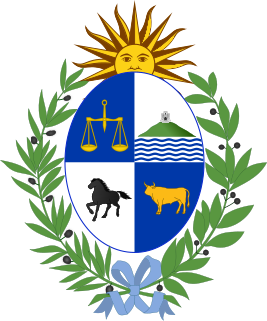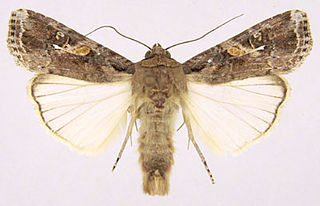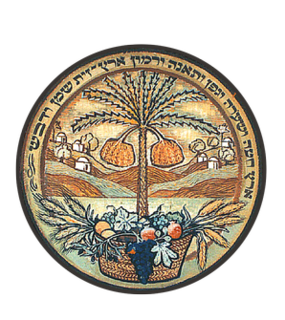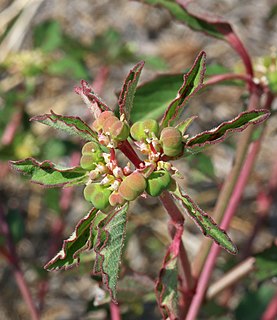Related Research Articles

Colombia seeks diplomatic and commercial relations with all countries, regardless of their ideologies or political or economic systems. For this reason, the Colombian economy is quite open, relying on international trade and following guidelines given by international law.

The Foreign relations of Egypt are the Egyptian government's external relations with the outside world. Egypt's foreign policy operates along a non-aligned level. Factors such as population size, historical events, military strength, diplomatic expertise and a strategic geographical position give Egypt extensive political influence in the Middle East, Africa, and within the Non-Aligned Movement as a whole. Cairo has been a crossroads of the Arab world's commerce and culture for centuries, and its intellectual and Islamic institutions are at the center of the region's social and cultural landmarks.

The foreign relations of Jordan have consistently followed a pro-Western foreign policy and traditionally Jordan has had close relations with the United States and the United Kingdom. These relations were damaged when Jordan proclaimed its neutrality during the Gulf War and maintained relations with Iraq. In public, Jordan continued to call for the lifting of UN sanctions against Iraq within the context of implementing UNIC resolutions.

This article deals with the diplomatic affairs, foreign policy and international relations of Uruguay. At the political level, these matters are officially handled by the Ministry of Foreign Relations, also known as Cancillería, which answers to the President.

The International Plant Protection Convention (IPPC) is a 1951 multilateral treaty overseen by the United Nations Food and Agriculture Organization that aims to secure coordinated, effective action to prevent and to control the introduction and spread of pests of plants and plant products. The Convention extends beyond the protection of cultivated plants to the protection of natural flora and plant products. It also takes into consideration both direct and indirect damage by pests, so it includes weeds.
An EPPO code, formerly known as a Bayer code, is an encoded identifier that is used by the European and Mediterranean Plant Protection Organization (EPPO), in a system designed to uniquely identify organisms – namely plants, pests and pathogens – that are important to agriculture and crop protection. EPPO codes are a core component of a database of names, both scientific and vernacular. Although originally started by the Bayer Corporation, the official list of codes is now maintained by EPPO.

The European and Mediterranean Plant Protection Organization (EPPO) is an intergovernmental organisation responsible for European cooperation in plant protection in the European and Mediterranean region. Founded in 1951 and based in Paris, France, EPPO is the Regional Plant Protection Organization (RPPO) for Europe under the International Plant Protection Convention (IPPC).

The khapra beetle, also called cabinet beetle, which originated in South Asia, is one of the world's most destructive pests of grain products and seeds. It is considered one of the 100 worst invasive species in the world. Infestations are difficult to control because of the insect's ability to survive without food for long periods, its preference for dry conditions and low-moisture food, and its resistance to many insecticides. There is a federal quarantine restricting the importation of rice into the U.S. from countries with known infestations of the beetle. Khapra beetle infestation can spoil otherwise valuable trade goods and threaten significant economic losses if introduced to a new area. Handling or consuming contaminated grain and seed products can lead to health issues such as skin irritation and gastrointestinal distress.

Germany–Israel relations refers to the diplomatic relationship between the Federal Republic of Germany and the State of Israel. After the end of World War II and the Holocaust, relations gradually thawed as West Germany offered to pay reparations to Israel in 1952 and diplomatic relations were officially established in 1965. Nonetheless, a deep mistrust of the German people remained widespread in Israel and the Jewish diaspora communities worldwide for many years after. Relations between East Germany and Israel never materialised. Israel and Germany now maintain a "special relationship" based on shared beliefs, Western values, and a combination of historical perspectives. Among the most important factors in their relations is Nazi Germany's genocide of Jews in Europe during the Holocaust.

A protecting power is a country that represents another sovereign state in a country where it lacks its own diplomatic representation. It is common for protecting powers to be appointed when two countries break off diplomatic relations with each other. The protecting power is responsible for looking after the protected power's diplomatic property and citizens in the hosting state. If diplomatic relations were broken by the outbreak of war, the protecting power will also inquire into the welfare of prisoners of war and look after the interests of civilians in enemy-occupied territory.

The Ministry of Agriculture and Rural Development of Israel is the ministry of the Israeli government that oversees the country's agricultural industry. The ministry was originally called Ministry of Agriculture, but in 1992 the title was changed to its current form. The Development Ministry, which oversaw rural development, was abolished in 1974.

Cyprus–United States relations are bilateral relations between the Republic of Cyprus and the United States of America. Relations between the two countries can be described as being excellent, both sharing membership in the United Nations, International Monetary Fund, the Organization for Security and Co-operation in Europe, the World Bank and the World Trade Organization. Cyprus has been an observer to the Organization of American States.

The fall armyworm is a species in the order Lepidoptera and is the larval life stage of a fall armyworm moth. The term "armyworm" can refer to several species, often describing the large-scale invasive behavior of the species' larval stage. It is regarded as a pest and can damage and destroy a wide variety of crops, which causes large economic damage. Its scientific name derives from frugiperda, which is Latin for lost fruit, named because of the species' ability to destroy crops. Because of its propensity for destruction, the fall armyworm's habits and possibilities for crop protection have been studied in depth. It is also a notable case for studying sympatric speciation, as it appears to be diverging into two species currently. Another remarkable trait of the larva is that they practice cannibalism as a disease control mechanism.

The North American Plant Protection Organization (NAPPO), is the phytosanitary standard setting organization recognized by the North American Free Trade Agreement (NAFTA). It was created in 1976 as a regional organization of the International Plant Protection Convention (IPPC) of the Food and Agriculture Organization (FAO) of the United Nations. Previously based in Ottawa, Ontario, it is now headquartered in Raleigh, North Carolina.
An agricultural attaché is a diplomat who collects, analyzes, and acts on information on agriculture, agribusiness, food, and other related spheres in a foreign country or countries. Agricultural attachés may be directly employed by the sending country's agriculture ministry, or they may be employed by the foreign ministry. Typical activities of an agricultural attaché include reporting on crop conditions, food availability, domestic agricultural policy and the foreign trade outlook in agricultural commodities; negotiating food aid agreements and agricultural credit lines; implementing agricultural technical assistance programs; facilitating professional contacts, exchanges, and technology transfer; assisting in negotiating bilateral and multilateral trade agreements; and promoting the exports of agricultural and food products. In many cases, agricultural attachés may also bear responsibility for issues related to the environment, food security, food safety, fisheries, forestry, and indeed anything related to rural areas and the rural economy.

The Agricultural Research Organization, Volcani Center, previously known as the Agricultural Research Station of the Jewish Agency for Palestine, is an Israeli agricultural research center. It serves as the research arm of the Ministry of Agriculture and Rural Development of the State of Israel and provides research opportunities for local and international scientists at post-graduate levels, as well as educational opportunities for Israeli and international youths, farmers and scientists. The organization supports Israeli agriculture research, focusing on plant sciences, animal sciences, plant protection, soil and environmental sciences, food sciences, and agricultural engineering. The organization was founded in 1921 in Ben Shemen, Israel, by Yitzhak Elazari Volcani, for whom it is named.
Plant Protection and Quarantine (PPQ) is one of six operational program units within the Animal and Plant Health Inspection Service (APHIS) of the United States Department of Agriculture (USDA). The PPQ works to safeguard agriculture and natural resources in the U.S. against the entry, establishment, and spread of animal and plant pests and noxious weeds, to help ensure an abundant, high-quality, and varied food supply.
Pest risk analysis (PRA) is a form of risk analysis conducted by regulatory plant health authorities to identify the appropriate phytosanitary measures required to protect plant resources against new or emerging pests and regulated pests of plants or plant products. Specifically pest risk analysis is a term used within the International Plant Protection Convention (IPPC) and is defined within the glossary of phytosanitary terms. as "the process of evaluating biological or other scientific and economic evidence to determine whether an organism is a pest, whether it should be regulated, and the strength of any phytosanitary measures to be taken against it". In a phytosanitary context, the term plant pest, or simply pest, refers to any species, strain or biotype of plant, animal or pathogenic agent injurious to plants or plant products and includes plant pathogenic bacteria, fungi, fungus-like organisms, viruses and virus like organisms, as well as insects, mites, nematodes and weeds.

Euphorbia davidii, known as David's spurge or toothed spurge, is a species of flowering plant in the spurge family Euphorbiaceae.
Scirtothrips aurantii is a thrips pest of Citrus spp., Mangifera indica, Musa × paradisiaca, Musa acuminata, and Camellia sinensis.
References
- 1 2 3 "Israel". International Plant Protection Convention. Retrieved 2021-05-01.
- ↑ "Plant Protection and Inspection Services". Ministry of Agriculture . 2021-05-01. Retrieved 2021-05-01.
- ↑ "Plant Protection and Inspection Services of the Ministry of Agriculture and Rural Development". European Research Area-LEARN. 2021-03-29. Retrieved 2021-05-01.
- ↑ "Agriculture and Science". Embassy of Israel in Washington, D.C.
- ↑ "EPPO member countries". EPPO (European and Mediterranean Plant Protection Organization). Retrieved 2021-05-05.
- ↑ "EUPHRESCO". Euphresco. EPPO European and Mediterranean Plant Protection Organization . Retrieved 2021-05-01.